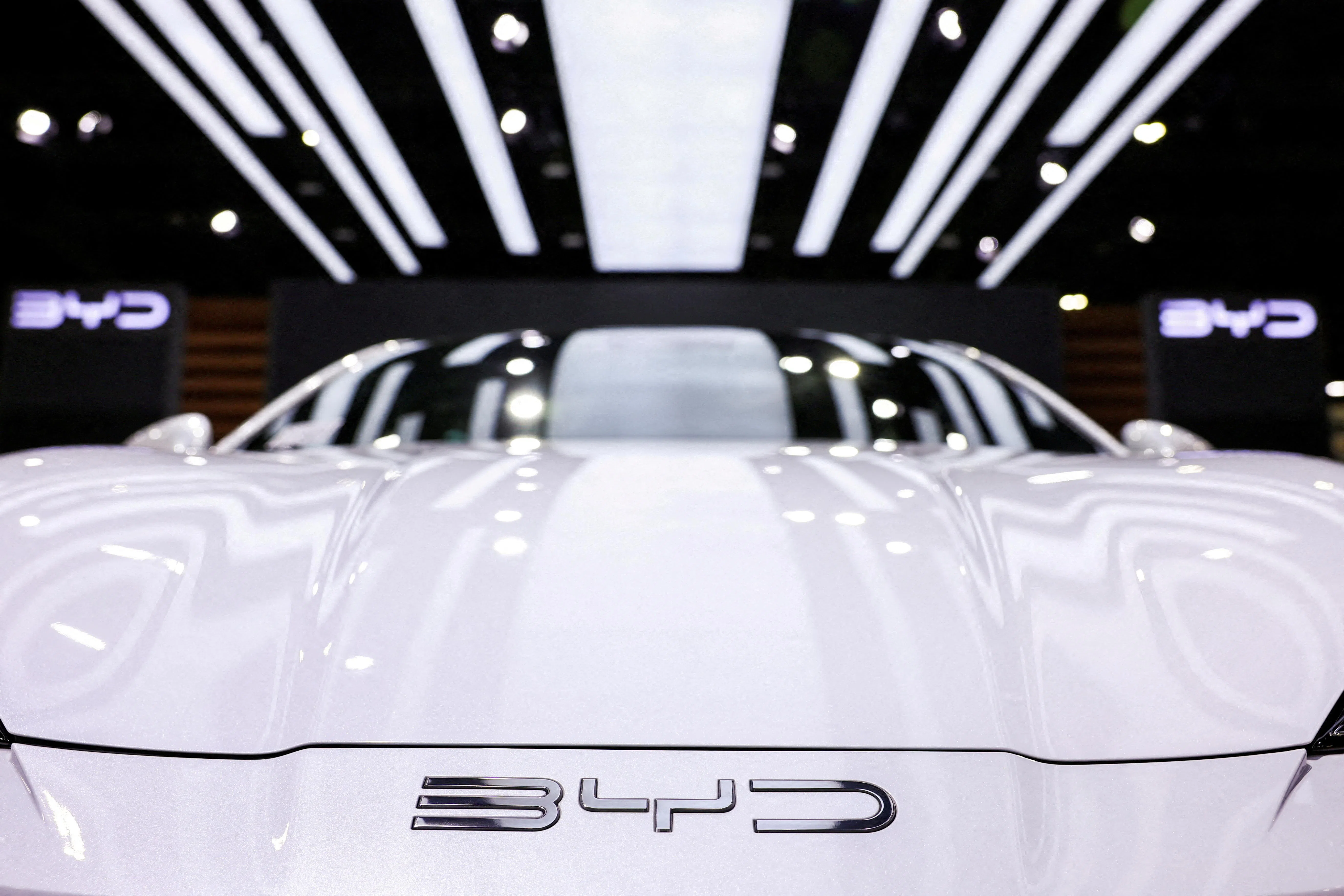[ad_1]
[RAYONG, THAILAND] Chinese automaker BYD on Thursday (Jul 4) opened its first overseas production plant in Thailand – the company’s first in South-east Asia – with the aim of doubling down on its status as the country’s dominant EV player.
“Thailand has a clear EV vision and is entering a new era of auto manufacturing. We will bring technology from China to Thailand,” said BYD chief executive and president Wang Chuanfu at the opening ceremony in Rayong, a province in the east of Thailand that’s about 180 km from the capital Bangkok.
The ceremony was attended by Thai Industry Minister Pimphattra Wichaikul and other Cabinet members, Board of Investment secretary-general Narit Therdsteerasukdi and senior BYD executives.
“This is an important step for Thailand and BYD, which has chosen Thailand as its first production base overseas,” said Narit.
The new facility, announced two years ago, is worth US$490 million and will have a production capacity of 150,000 vehicles per year, including plug-in hybrids.
It is part of a series of major investments worth over US$1.4 billion from various Chinese EV manufacturers that are busy establishing factories in Thailand. The government has helped with this push by dishing out generous subsidies and tax incentives.
A NEWSLETTER FOR YOU

Friday, 8.30 am
Asean Business
Business insights centering on South-east Asia’s fast-growing economies.
Thailand wants to convert about 30 per cent of its annual production of 2.5 million into EVs by 2030.
Speaking at the event, BYD’s regional head Liu Xueliang said that the company has already sold 3.02 million units outside of China as of the end of 2023. The company also has 40 branch offices in different parts of the world.
In Thailand, BYD was granted a range of tax incentives in August 2022 from the BOI to invest an estimated 17.9 billion baht (S$661.5 million) to assemble BEVs locally by 2024 for the local market and exports.
The new Rayong plant, situated on a 96-hectare plot of land, will begin production starting with the Dolphin passenger car model for the local market. The plant will employ some 10,000 Thai workers.
Altogether, BYD has invested 35 billion baht in Thailand since 2022, covering nine projects including the production factory, a battery plant and components, said Pimphattra.
Under a special promotion package managed by the BOI to attract BEV manufacturing to Thailand, imported BYD EV models have enjoyed reduced import and excise taxes into the Thai market since 2022, on the provision that they began local production in 2024.
In receiving the lowered tax on BEV imports, BYD and other Chinese producers had to sign an agreement with the government that they would establish a local manufacturing base in Thailand and manufacture BEVs on a 1:1 ratio of imported units that received the subsidy by 2024, with the ratio rising to 1:5 by 2025.
Since the launch of the aggressive promotion scheme, Thailand has secured commitments from numerous China automakers such as BYD, Great Wall Motor, SAIC-MG and recently Omoda & Jaecoo, a subsidiary of Chery Automobile.
Other big players like Japan’s Toyota, Germany’s Mercedes Benz and Taiwan’s Foxconn (in a joint venture with Thailand’s national oil company PTT) have also joined the programme and are committed to local EV production.
Since 2022 the BOI has granted tax incentives to 103 projects worth 77.1 billion baht in EV-related segments. The projects include EV assembly, battery manufacturing and EV charging stations.
Hong Kong-listed shares of BYD rose 3.2 per cent to HK$237.60, which was the biggest intraday jump since June 13.
[ad_2]
Source link




